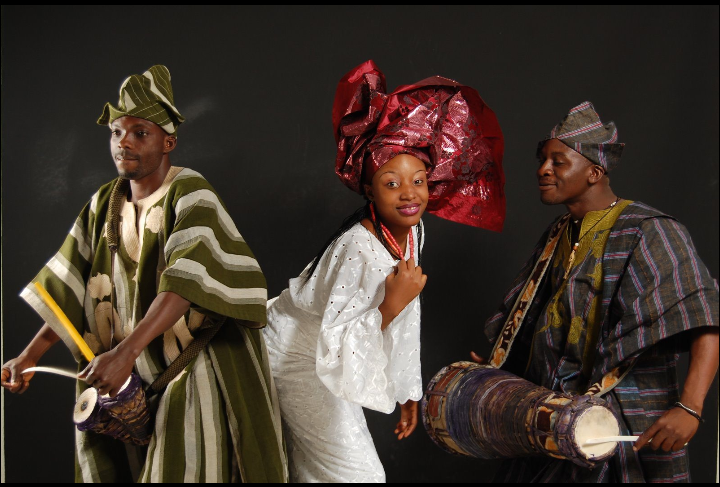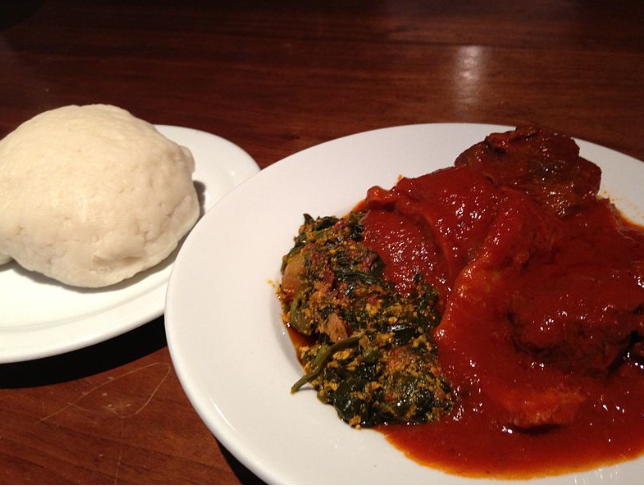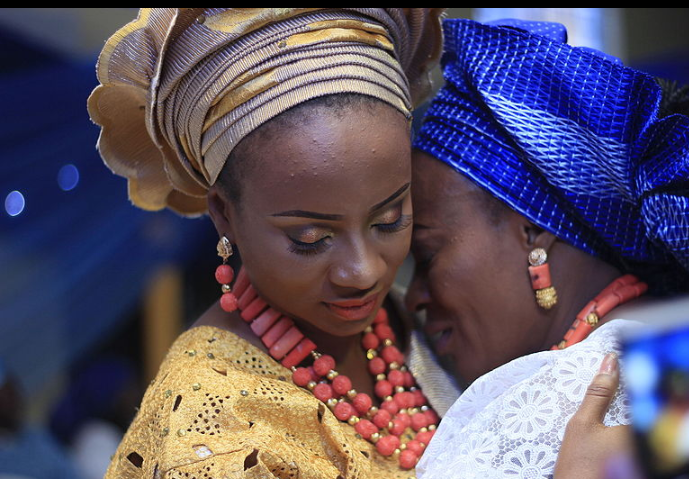The Yoruba people are an ethnic group that is found in western Africa, mainly Nigeria, Benin, Togo and some part of Ghana. The Yoruba population grows to about 57-60 million worldwide and majority if them is from Nigeria. making them one of the largest ethnic groups in Africa. Most Yoruba people speak the Yoruba language, which is the Niger-Congo language with the largest number of native speakers.
Before Oyo
The history of the Yoruba people begins in Ile-Ife. This kingdom was founded by the deities Oduduwa and Obatala, who are believed to have created the world. Oduduwa was the first divine king of the Yoruba people, and Obatala fashioned the first human beings out of clay. It is said the Yoruba people believe that their civilization began at Ile-Ife where the gods descended to earth.
The yoruba Sculpture:
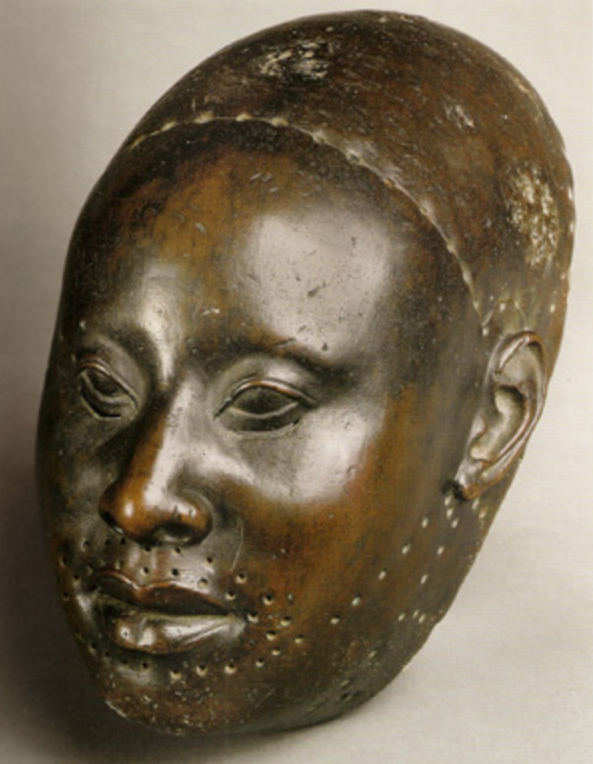
Yoruba copper mask for King Obalufon, Ife, Nigeria c. 1300 CE
The Yoruba are said to be good sculptors, famous for their terra cotta works throughout the 12th and 14th century; artists also harnests their capacity in making artwork out of bronze.
Esiẹ Museum is a museum in Esiẹ, Irepodun, Kwara. The museum was the first to be established in Nigeria when it opened in 1945. The museum once housed over a thousand tombstone figures or images representing human beings. It is reputed to have the largest collection of soapstone images in the world. In modern times, the Esie museum has been the center of religious activities and hosts a festival in the month of April every year.
The yorubas Textile:
Weaving is done on different types of looms in order to create hundreds of different patterns. Adire is one of the popular textiles in Yoruba land. And it is a very beautiful piece.
The yorubas Cuisine:
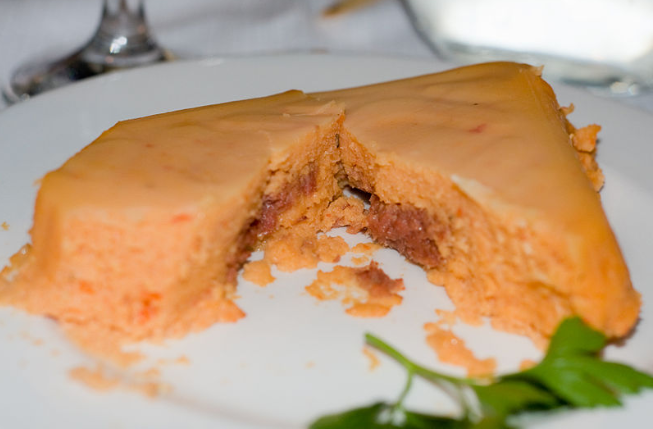
Cut Moin Moin;"Ewe eran" leaves (Thaumatococcus daniellii) are traditionally used to improve flavoring.
Some common foods native to the Yoruba include moin-moin (steamed bean pudding) and akara (bean cake). Yoruba soups include ewedu, gbegiri (it is made from beans), and efo riro (a vegetable soup). Such soups as okra (locally known as ila alasepo) and egusi (melon soup) have become very popular in Western Nigeria. and, in addition to Amala (yam flour), a traditional Yoruba fufu made of yam flour, these can be eaten with numerous Nigerian fufu meals, including pounded yam (locally referred to as iyan); lafun, a Nigeria fufu made from cassava; semolina; and garri (eba).
Some dishes are prepared specially for festivities and ceremonies. Jollof rice, fried rice and Ofada rice very common in Nigeria (especially in the southwest region, including lagos). Other popular dishes include Asaro, Efokore, Ekuru and Aro, stews, corn, cassava, and flours (such as maize, yam and plantain flours), eggs, chicken, and assorted meat and fish). Others are arrowroot gruel, sweetmeats, fritters and coconut concoctions; and some breads such as yeast bread, rock buns, and palm wine bread. Yoruba cuisine is quite vast and often includes plantains which can be boiled, fried or roasted.
The Yoruba Naming customs:
The Yoruba people believe that people live out the meanings of their names. As such, Yoruba people put considerable effort into naming a baby. Their philosophy of naming is conveyed in a common adage, ile ni a n wo, ki a to so omo l'oruko ("one pays attention to the family before naming a child"): one must consider the tradition and history of a child's relatives when choosing a name.
Examples of names given with reference to the family tradition include Ogundiran (Ogun has become a living tradition in the family); Ayanlowo (Ayan drumming tradition is honorable); Oyetoso (Chieftaincy is ornament); Olanrewaju (Honor is advancing forward); Olusegun (God has conquered the enemy)."ajewole" (wealth as being the family)
Abiku name:
Abi - birthed, or Bi - born
Iku - death, or Ku - die / dead
The royuba Law:
Yoruba law is the legal system of Yorubaland. It is quite intricate, each group and subgroup having a system that varies, but in general, government begins within the immediate family. The next level is the clan, or extended family, with its own head known as a Baálé. This chief will be subject to town chiefs, and these chiefs are usually themselves subject to their Oba, who may or may not be subject to another Oba himself.
Most of what survived of this legal code has been assimilated into the customary laws of the sovereign nations that the Yoruba inhabit.
The yoruba Linguistics:
Yoruba written literature begins with the formation of its grammar published in 1843. The standard language incorporates several features from other dialects.learn more from wikipedia.
The yoruba Weddings:
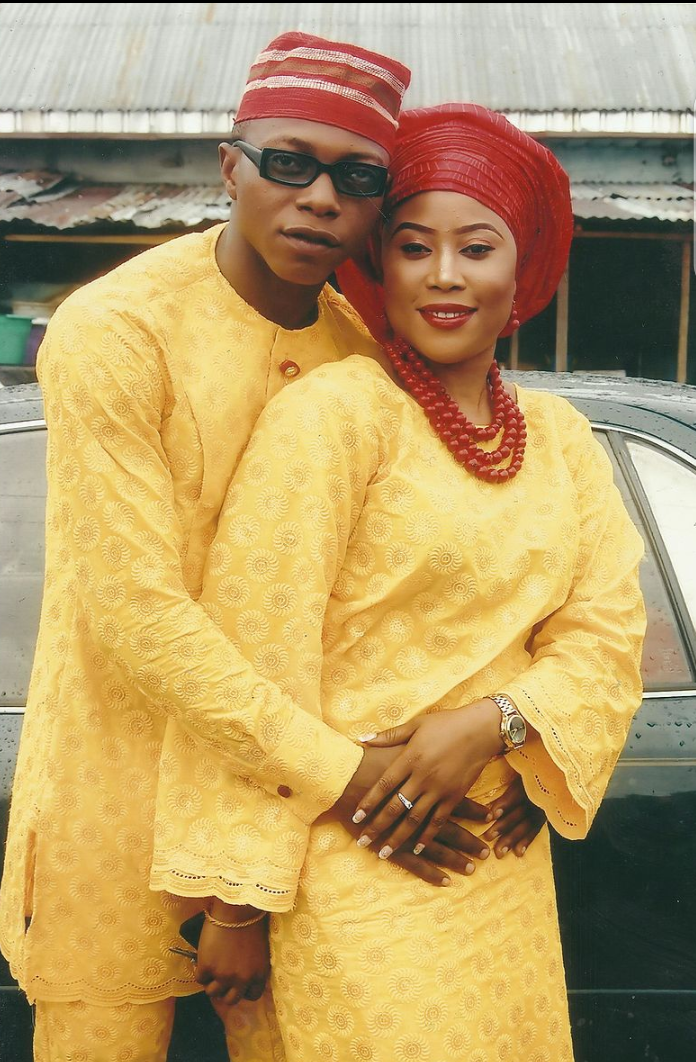
Marriage ceremony. The dress pattern is typical of the yoruba ethnic group in Nigeria.
The child that is named will grow to adulthood and will get married. The Yoruba culture provides for the upbringing of the child by the extended family. In traditional society, the child is placed with a master of whatever craft the gods specify for him or her. Or he may take to the profession of the father, in the case of a boy, or the mother, in the case of a girl. The parents have the responsibility for his/her socialization into the norms of the larger society, in addition to giving him a means of livelihood. His or her wedding is also the responsibility of the parents.
The wedding ceremony is the climax of a process that starts with courtship. The young man identifies a young woman that he loves. He and his friends seek her out through various means. The young man sends messages of interest to the young woman until such a time that they are close enough to avoid a go-between (alarina).
Then once they both express mutual love, they let their parents know about their feelings for each other. The man's parents arrange to pay a visit to the prospective bride's parents. Once their consent is secured, the wedding day may be set. Prior to the wedding day, the payment of bride price is arranged. This secures the final consent of the bride's parents, and the wedding day is fixed.
Once the day has been fixed through either consultation of the Orishas by a babalawo (in the case of followers of the Yoruba religion) or the decision of a man of God (in the case of the Christians or Muslims), the bride and bridegroom are warned to avoid travelling out of town, including to the farm. This is to prevent any mishap. The wedding day is a day of celebration, eating, drinking and dancing for parents, relations, the new husband and wife and their friends and, often, even foes.
Marriage is not considered to be only a union of the husband and wife, it is also seen among the Yoruba as the union of the families on both sides. But before the bride goes to her husbands house, she is escorted by different people i.e. family and friends to the door step of her new home in a ritual called Ekun Iyawo
meaning 'The cry of the new bride', this is to show that she is sad leaving her parents' home and signify her presence in the new home. There she is prayed for and her legs are washed. It is believed that she is washing every bad-luck that she might have brought into her husband's house away.
Before she is finally ushered into her house, if she is an adherent of the Yoruba faith, she is given a calabash (igba) and is then asked to break it. When it breaks, the number of pieces it is broken into is believed to be the number of children she will give birth to.
On the wedding night she and her husband have their first meeting and he is ordinarily expected to find her to be a virgin. If he doesn't, she and her parents are disgraced and may be banished from the village where they live.
While this is the only marital ceremony that is practiced by the more traditional members of the tribe, Christian and Muslim members generally blend it with a church wedding and registry wedding (in the case of Christians) or a nikkah and registry wedding (in the case of Muslims). In their communities, the Yoruba ceremony described above is commonly seen as more of an engagement party than a proper wedding rite.
The yoruba MUSIC:
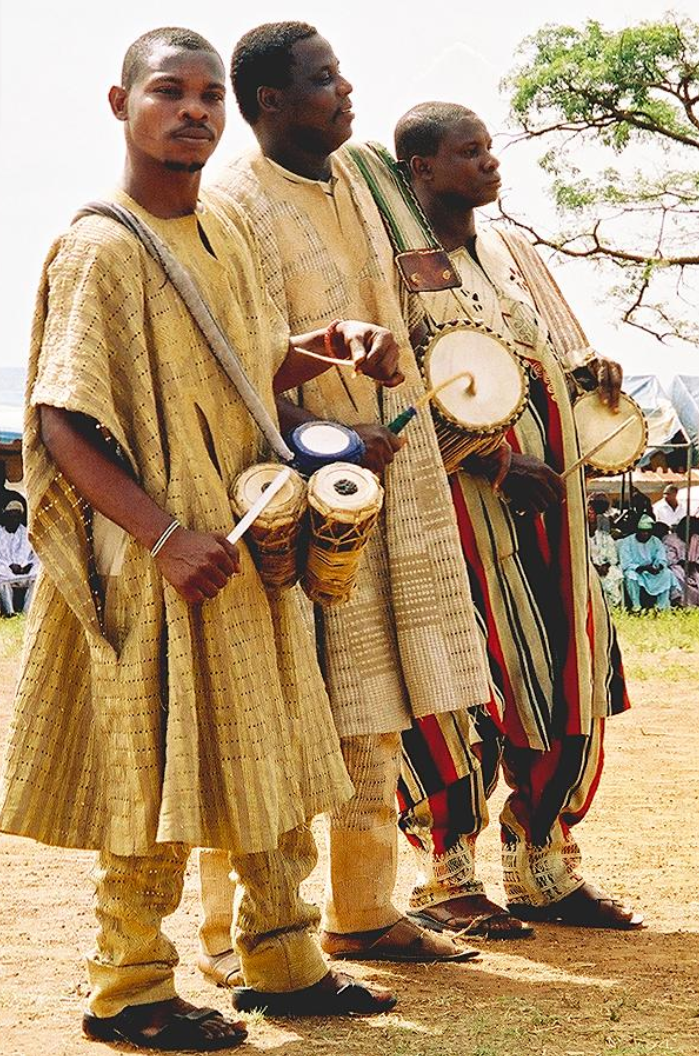
Yoruba cultural dancers
Music and dance have always been an important part of their culture; used in the many different forms of entertainment.Musical instruments includes Bata, saworo, sekere, gangan etc. Musics varieties include Juju, Fuji etc with artists including King Sunny Ade, Ebenezer Obey, Wasiu Ayinde KWAM 1 etc.learn more from wikipedia
The yoruba Religion (Ẹsín)
The Yoruba are said to be religious people, but they are also pragmatic and tolerant about their religious differences. Whilst many profess the Yoruba school of thought; many more profess other faiths e.g. Christianity, Islam etc.learn more from wikipedia
Thank you for reading. Much ❤
